




Native Tongues was an a series of seasonal interventions with migrant schoolchildren on the island of Jersey that looked to explore interrelationships of land, language and food biodiversity. The project consisted of three workshops with migrant schoolchildren who were learning the native language of Jèrriais, to forage, taste and imagine vernacular ways of caring for the soil with elderly native speakers. The aim was to strengthen the connections between the two demographics, practise the language, and unearth vital knowledge for Jersey’s soil resilience.
Participants were invited to a series of workshops where we shared stories, foraging plants, and tasted and named new species. During the workshops, talked about the perspectives of members of communities living on the Island of Jersey, its history, interpretation, and reception.




The project was as a way to explore biocultural knowledges held in the land, the sea and the language in ways that speak to how ideas around 'nativeness' and 'invasiveness' are constructed, and how this has shaped a hierarchy of knowledge and belonging on Jersey (particularly for precarious migrant workers in the food industry).
The project culminated in a foraged dinner inspired by global recipes with project participants. It featured h music by Meli-Melo, a Jèrriais language folk band, and demonstration of a bachîn a steel pan played as a musical instrument during harvesttime to scare off evil spirits, which is used to make the famous Jersey 'black butter'.
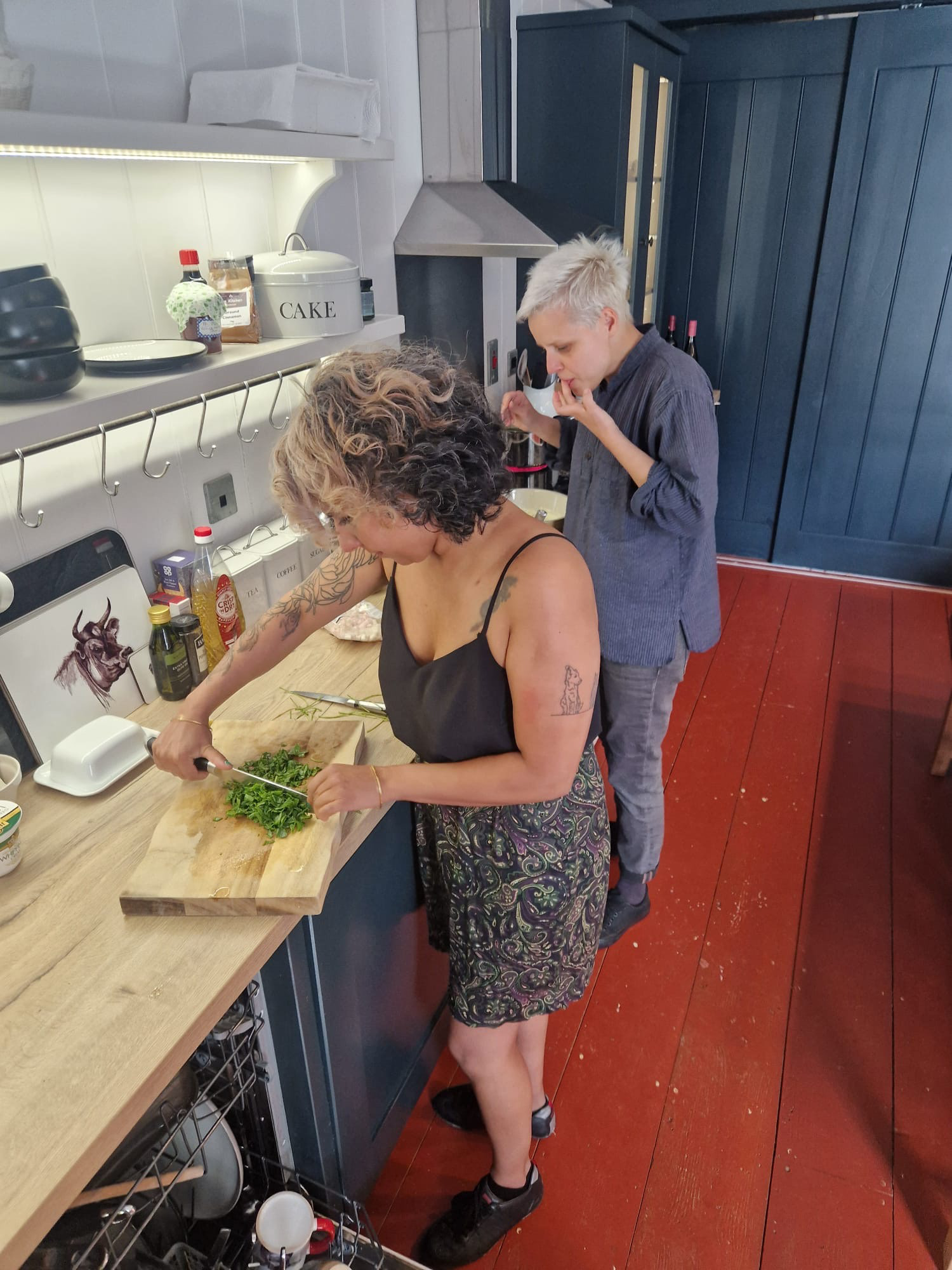
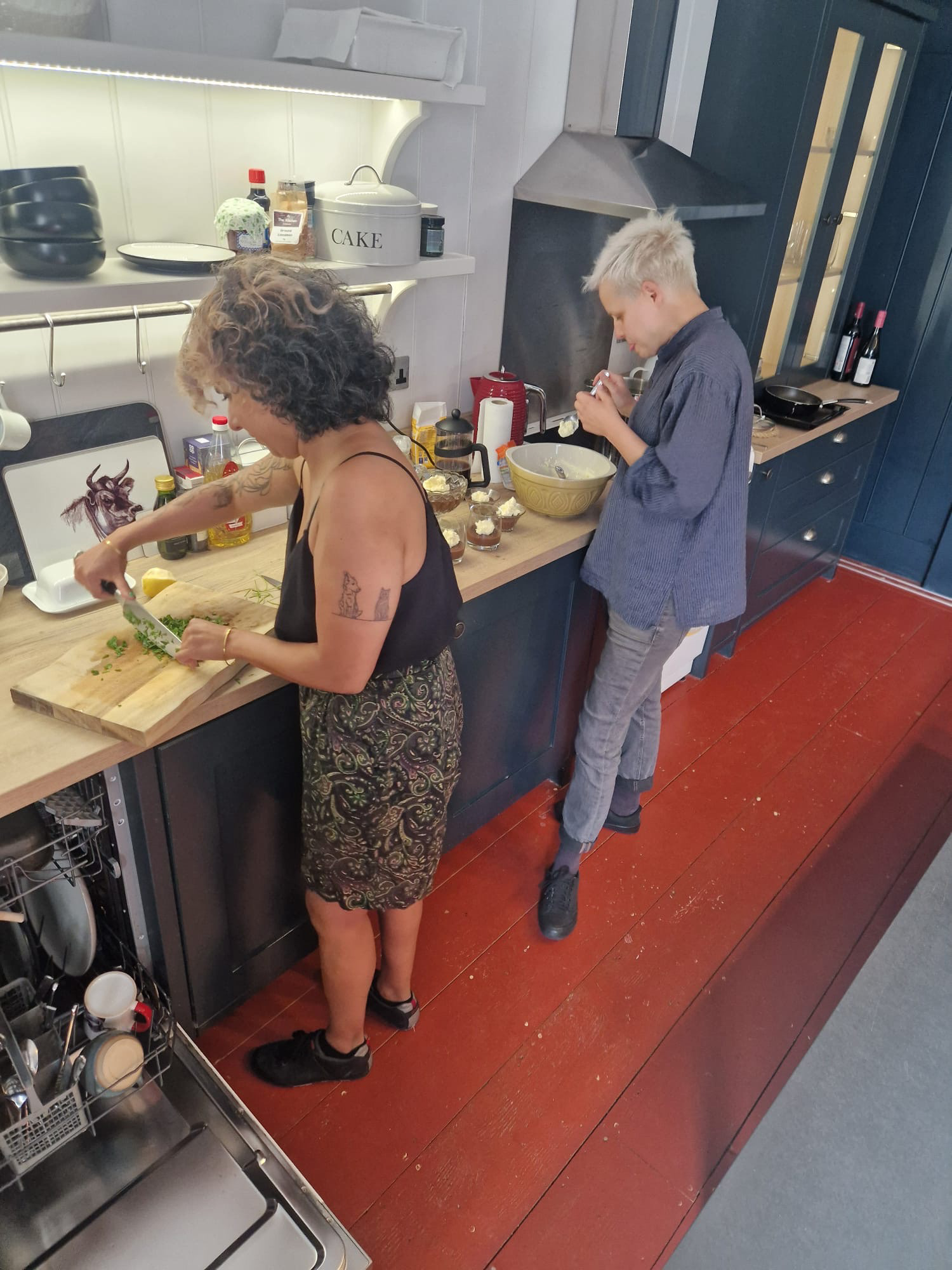
Native Tongues is a collaboration with ArtHouse Jersey and forms part of Abundant Futures, a multiyear project curated by Dana Olărescu. Outcomes include a seasonal foraging map, a set of multilingual cards to help foragers identify plants, and a set of recipes that suggest how the ingredients might be used.